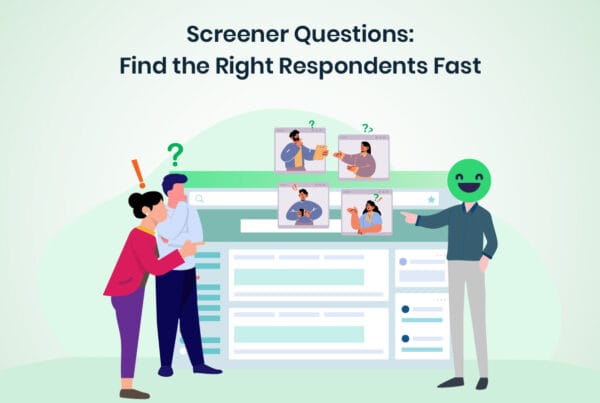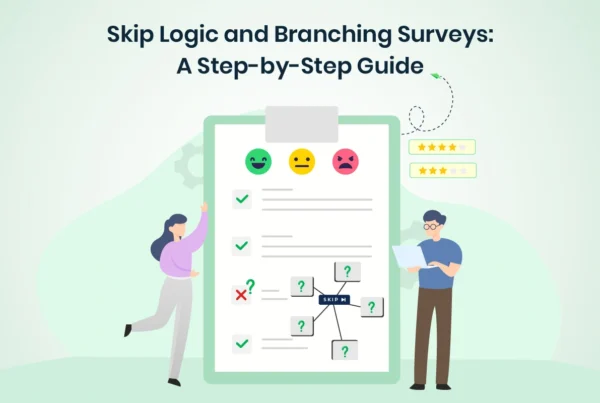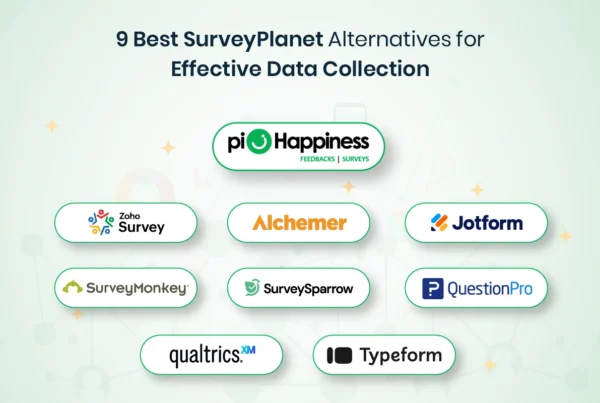Are you tired of hearing crickets after launching your course? Have you considered why there’s been a significant drop-off in student enrollment for your course? Perhaps you have lingering questions and concerns about how to address these issues effectively, but ultimately, your goal is to enhance the online course experience and boost enrollment numbers.
Boost Course Success with Key Feedback Questions❤️
Discover the essential tools from piHappiness!
In today’s digital landscape, competition for online courses is fierce. Students’ attention spans have grown fragmented, and they have endless options available. To differentiate yourself from the competition and to retain students, you must constantly assess and improve your course based on feedback.
Imagine dedicating all your energy to developing the ideal online course, only to have it met with silence. That’s where survey questions come in. They are the secret to improving your course and comprehending your students’ demands.
Survey Questions: Main Types and Questions to Ask
Feedback serves as a compass and helps you better understand your learners’ needs, preferences, and pain points. But not just any questions will suffice. The best of the best is required.
The key to unlocking your course’s potential lies in these five simple survey question types:
1. General Questions
These questions are more of a warm-up to the respondents. Even though these questions are generic in nature, they can give you the overall impression that the learners have regarding your course in every aspect.
In this generic question section, you can ask their opinion on anything, so keep all your easy-to-ask but insightful queries here.
Furthermore, this section allows for open-ended responses and provides insights into various aspects of the course that might not be covered in other sections.
- What is the one thing that motivated you to choose this course?
- What’s the first word that comes to mind when you think about this course?
- What did you like the most about this course?
- If you could change one thing from this course, what would it be?
- What did you like the least about this course?
- How likely are you to recommend this course to your peers?
Allow students to express their concerns and share their suggestions, thoughts, and any concerns.
2. Course Content Questions
Course content is the foundation to establish a student’s learning experience. All the instructors need constructive feedback to assess whether their course content meets the needs and expectations of their learners. While embracing these course survey questions include only targeted questions that will extract maximum data from the feedback.
- Did you find the course content detailed enough to meet your needs?
- On a scale of 1-10 (1 being the lowest and 10 being the highest), how much would you rate for the content quality?
- Did the course content meet your expectations?
- Is there anything that was missing from the course content? If yes, what is it?
- Were the content’s skills and concepts effectively explained?
- Is the course content engaging and easy to understand?
3. Learners Expectation Measuring Questions
Asking a few evaluation survey questions before a course starts gives the instructors a clear picture and an idea about what the learners want to see and learn. These questions can help you reorganize and match your course content with the learners’ expectations.
Understanding students’ expectations will pave the way for a satisfactory learning environment. By posing these queries, you are investing time to acquire insights that you would normally acquire after course completion.
However, by seeking learners’ expectations before the course begins, you can seize the opportunity to tweak course content as needed and reallocate time for more productive tasks.
- What are your three key learning expectations for this course?
- Were the course objectives communicated clearly at the beginning?
- What do you hope to achieve by the end of this course?
- What are your preferred learning methods?
- What are your learning goals concerning this course?
- What are you hoping to be covered in this course?
4. Instructor Specific Questions
An instructor plays a crucial role in molding a course learning experience. Learners rely on the instructor’s teaching methods, guidance, knowledge, and skills until they complete the course. By including instructor-specific questions, you can reckon with a particular instructor’s effectiveness and caliber in engaging learners.
This section of survey questions is highly effective for instructors because it allows them to address learners’ questions or concerns and provides education institutions with an opportunity to offer constructive online course feedback.
Educational institutions may easily identify strengths, weaknesses, and areas that need extra attention, helping instructors focus on areas they can further improve for an impactful learning environment.
- Was the instructor well-prepared for the class?
- Did the instructor provide valuable feedback on your performance, tests, papers, etc?
- How helpful was the instructor in clarifying student’s doubts?
- How would you rate the instructor’s expertise and knowledge in the subject matter?
- How satisfied are you with the instructor’s communication level while engaging with the students?
- Did the teacher encourage participation from students and lead discussions during the class?
5. Course Material Questions
Questions regarding course material are as crucial as the instructor’s questions. The course material is a primary tool for students in their learning process.
Be it textbooks, slides, videos, PDF files, audio, or additional resources, the course material must contain every tiny piece of information that will add value to a student’s knowledge and learning experience.
By asking relevant course material questions, you will be able to assess the content quality better, gauge its cogency, and determine its relevance.
Additionally, these questions will enable you to organize and enhance your material to better align with the organization and student needs.
- Did the material (textbook, videos, slides, digital media) support your learning effectively?
- Were the course materials helpful in understanding the course topics?
- Did the course material provide valuable learning resources such as examples, case studies, assignments, etc.?
- Did the course materials enhance your knowledge or expertise on (specific) subject/underlying concepts?
- Were the course materials easily accessible and well-organized?
- Is the course material well-equipped with lecture notes, visual aids, images, diagrams, classroom supplies, etc.?
Take advantage of the opportunity to gather data, make changes, and watch your course evolve into a dynamic and exciting learning experience.
Conduct Feedback Surveys Successfully
Define Clear Objectives
Prior to building your survey, make sure your aims and objectives are clearly defined. Determine the specific insights you want to elicit from your learners. This will allow you to create targeted questions and keep the survey focused and relevant.
Keep it Concise
Online learners have limited time and attention spans, so keep your survey brief and to the point. Avoid asking needless or redundant questions, which might lead to survey fatigue.
Use a Mix of Question Types
- Include a variety of question formats to collect different feedback types.
- Incorporate multiple-choice questions for quick responses, use rating scales to gauge their level of agreement or satisfaction, and provide the opportunity for respondents to offer extensive feedback through open-ended questions.
- Consider utilizing an online survey tool to expedite the feedback-gathering process and effectively compile and evaluate results.
Avoid Leading or Biased Questions
Ensure your survey questions are impartial and neutral—avoid questions that could sway respondents’ answers. Use straightforward language to preserve the survey’s integrity and obtain precise responses.
Closing Thoughts
To reach your desired level of online learning expectations, you need construction criticism. It highlights areas for improvement and paves the road to progress.
Don’t underestimate the power of feedback—it’s an action-based strategy that enables you to improve multiple aspects of your online course. By embracing feedback, you engage on a path of continuous improvement, ensuring that your course strengthens to meet your students’ requirements and preferences.
You can use feedback survey software like piHappiness to capture the student’s feedback within minutes and listen to what they need to say. Put in your few details and schedule a free demo now!








